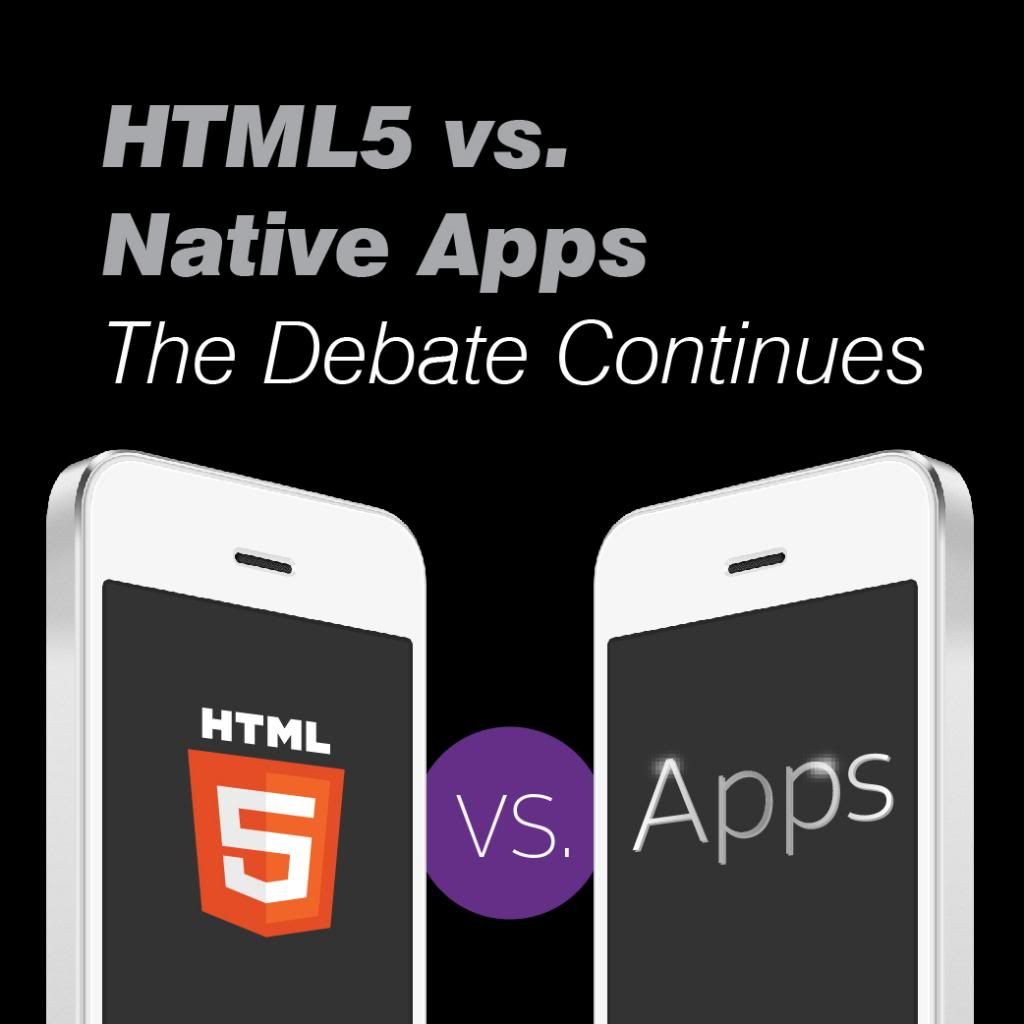By Tim Cronin
The debate over HTML5 vs. Native apps has been going on for
a while, and the term ‘web’ is no longer limited to only desktop and laptop
PCs. Mobile hasn’t just made its mark on the web; these “always on, always
connected” devices are now on pace to overtake PC shipments. According to the International
Data Corporation, PC shipments dropped to 76.3 million units in the first
three months of this year – that’s a 13.9 percent decline from the same period
in 2012. And then there’s the shift in how consumers worldwide are using tablet
devices. These once clunky and expensive devices are now sleek, easy to use and
affordable and so much so, that consumers are using tablets to perform the
types of activities once reserved for PCs, such as accessing bank
accounts/financial information, reading news, watching videos and listening to
music. So now that we know the future is in mobile, the question remains: Is it
better to connect through the web (HTML5) or native apps downloaded to our
devices?
It’s an app world and
the browser just lives in it.
If you don’t already know it, it’s an app world and the
browser just lives in it. That’s what a recent report from Flurry
Analytics says. The study, conducted to celebrate the five-year anniversary
of the firm’s launch, found that the U.S. consumer spends an average of 2 hours
and 38 minutes per day on smartphones and tablets. 80 percent of that time (2
hours and 7 minutes, to be exact) is spent inside apps and 20 percent (only 31
minutes) is spent on the mobile web. Now add to that the staggering statistics
that the average number of apps launched per day by consumers climbed from 7.2
in 2010 to 7.5 in 2011 and finally to 7.9 in 2012, and it’s hard not to see
that native apps are leading the debate.
On one hand, Native apps provide greater functionality
through the use of features such as the device’s camera, microphone, calendar,
and GPS, as well as a simpler, cleaner UI design. In the current market,
publishing native apps allows app developers and publishers to cater their
offerings towards their audience, thus providing features and functionalities
that work across their chosen platforms. Using the app market framework also
allows increased app visibility, but it means that publishers and app developers
have to give Apple about 30 percent of their revenue.
HTML5 has some
maturing to do.
With Facebook CEO Mark
Zuckerberg announcing that using HTML5 was a strategic mistake back in
September, many developers are still wondering if the cross-platform
functionality of HTML5 will ever make up the differences of functionality that
can be achieved in native mobile apps. The key question for any app developer
or publisher is really to examine what is best for your monetization strategy
and which development choice works well for your customers.
At the moment, HTML5 is still in its programming infancy.
Though it allows app developers to write one set of code for multiple mobile
platforms, HTML5 itself has a long way to go to catch up to all of the added
benefits of a native app. Data tends to be extracted more slowly, making it
harder to execute mobile payments. Lag in execution time can also turn away
many mobile users, causing a loss in mobile revenue. However, as much as HTML5
apps may lag behind native apps at the moment, these apps are constantly
improving and adding features. A recent report from BI
Intelligence predicts that HTML5 will eventually win out over native apps,
citing the absence of Apple or Google regulations that may accompany HTML5
apps.
Although native apps may have the upper hand (for now),
HTML5 apps will definitely begin to entice app developers and publishers who
are looking to keep 100 percent of their monetization revenue, like the
Financial Times, one of the first to sidestep Apple and develop its own web
app. Many of these web apps like the Financial Times are already profitable,
even though they exist outside of app marketplaces. HTML5 might eventually win
the app battle, but it still has a way to go yet before it is the clear victor.
The key to deciding which programming language and
distribution option is best for app developers and publishers really comes down
to what you are offering, what audience you are trying to attract, and whether
you are willing to give up a portion of your revenue in exchange for increased
visibility in the app store and more stringent regulations.


pleasing article...this post is stunning with quotation of each info yet as info.
ReplyDeleteby HomeworkHelp provider
Good efforts. All the best for future mails. I have bookmarked you. Well completed. I read and like this mail. Thanks...
ReplyDeleteby BCOM 275 Individual Assignment Provider
CMS services are important for all web design and development companies. Because it have all development platform and tutorials like Joomla, Wordpress,Magento,Drupal,PHP.
ReplyDeleteWeb Design Company | Web Design Companies
Now the process of HTML 5 website developing is very difficult.why i saying like this because,more programming functionality is required for this platform.
ReplyDeleteWeb Design Company India | Web Development Company India
Amazing article. Your blog helped me to improve myself in many ways thanks for sharing this kind of wonderful informative blogs in live. I have bookmarked more article from this website. Such a nice blog you are providing ! Kindly Visit Us @ Local Packers And Movers Bangalore
ReplyDeletePackers and Movers RT Nagar Bangalore
Packers and Movers Marathahalli Bangalore
Packers and Movers Indiranagar Bangalore
Packers And Movers Bagalkot
Packers And Movers Belgaum